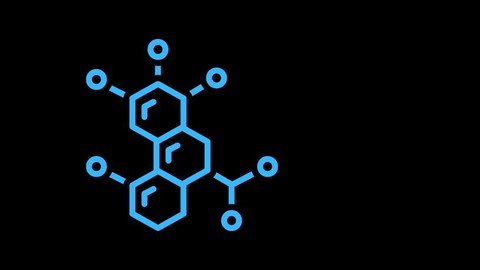Medical Biochemistry – Carbohydrate Metabolism Simplified

Free Download Medical Biochemistry – Carbohydrate Metabolism Simplified
Published 9/2023
MP4 | Video: h264, 1280×720 | Audio: AAC, 44.1 KHz
Language: English | Size: 392.94 MB | Duration: 0h 48m
Carbohydrate Metabolism in Health and Disease
What you’ll learn
Medical Biochemistry
Biochemical process knowledge
Biochemical pathways in diseases
Biochemical lab diagnosis
Requirements
English
Science
Description
Medical Biochemistry – Carbohydrates: Carbohydrate Metabolism in Health and DiseaseCarbohydrates serve as a vital source of energy for various cellular processes and form structural components in certain organisms. Understanding the metabolism of carbohydrates is crucial not only for appreciating normal physiological functions but also for diagnosing and managing metabolic disorders and diseases.Glycolysis and GluconeogenesisGlycolysis is the catabolic pathway that converts glucose into pyruvate, releasing energy stored in the glucose molecule. In contrast, gluconeogenesis is the anabolic pathway responsible for synthesizing glucose from non-carbohydrate precursors. These pathways are tightly regulated to maintain glucose homeostasis.Glycogen MetabolismGlycogen serves as the primary intracellular storage form of glucose. In times of energy demand, glycogen is rapidly broken down to glucose-1-phosphate through glycogenolysis. Glycogenesis is the opposite process, where glucose is stored as glycogen.Pentose Phosphate PathwayThis is crucial for the generation of NADPH and ribose-5-phosphate, which are essential for fatty acid synthesis and nucleotide synthesis, respectively.Carbohydrate Metabolism in HealthEnergy Production: Glycolysis and oxidative phosphorylation provide the necessary ATP for cellular activities.Regulation: Insulin and glucagon are key hormones that regulate these metabolic pathways.Storage: Excess glucose is stored as glycogen in the liver and muscle cells, preventing hyperglycemia.Carbohydrate Metabolism in DiseaseDiabetes Mellitus: Characterized by insulin resistance or inadequate insulin production, leading to hyperglycemia.Glycogen Storage Diseases: These are genetic disorders that affect the enzymes involved in glycogen metabolism.Fructose Intolerance: This involves defects in fructose metabolism, leading to fructose accumulation in the body.Galactosemia: A disorder where the body can’t properly metabolize the sugar galactose, leading to its accumulation in the blood.Lactose Intolerance: Inability to digest lactose due to a deficiency in the enzyme lactase.ConclusionCarbohydrate metabolism is a complex but tightly regulated process that is crucial for energy balance in the body. Disruption in any part of this system due to genetic predisposition, lifestyle choices, or other factors can lead to disease. Understanding these pathways provides valuable insights for therapeutic interventions.Understanding the biochemistry of carbohydrates and their metabolism is critical in both health and disease. Diagnostic tools can pinpoint disruptions in these pathways, providing invaluable information for medical intervention and treatment planning.
Overview
Section 1: Introduction
Lecture 1 Introduction
Lecture 2 Carbohydrate Metabolism – Introduction
Lecture 3 Classification of Carbohydrates
Section 2: Syllabus
Lecture 4 Course Syllabus
Section 3: Glycolysis
Lecture 5 reactions
Lecture 6 Rate limiting step and regulation of glycolysis
Section 4: Krebs Cycle
Lecture 7 Krebs Cycle – Clinical Approach
Medical,Nursing,Pharmacy,Allied Health Sciences,Postgraduates
Homepage
https://www.udemy.com/course/biochcarb/
DONWLOAD FROM RAPIDGATOR
fibjw.Medical.Biochemistry..Carbohydrate.Metabolism.Simplified.rar.html
DOWNLOAD FROM NITROFLARE
fibjw.Medical.Biochemistry..Carbohydrate.Metabolism.Simplified.rar
Fikper
fibjw.Medical.Biochemistry..Carbohydrate.Metabolism.Simplified.rar.html